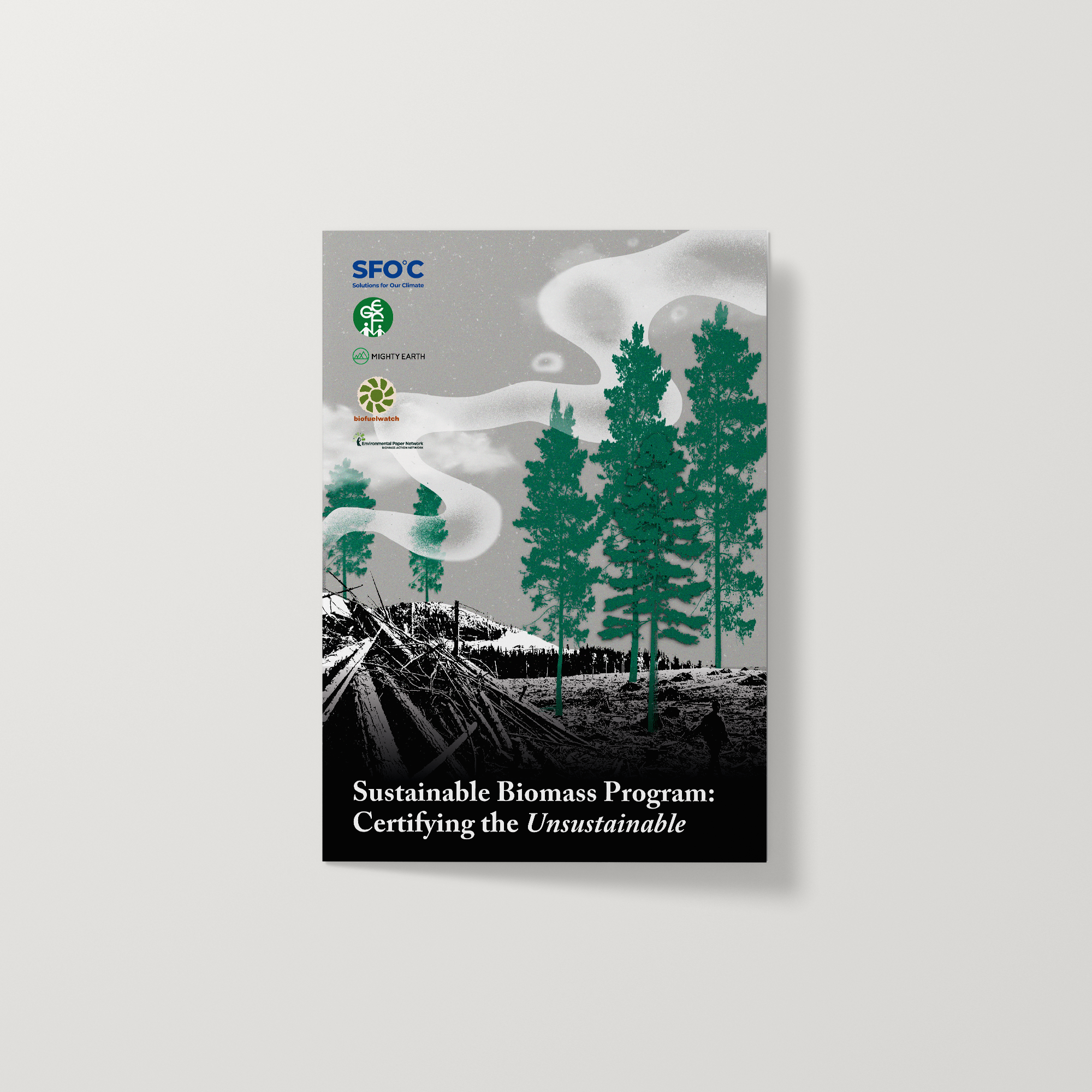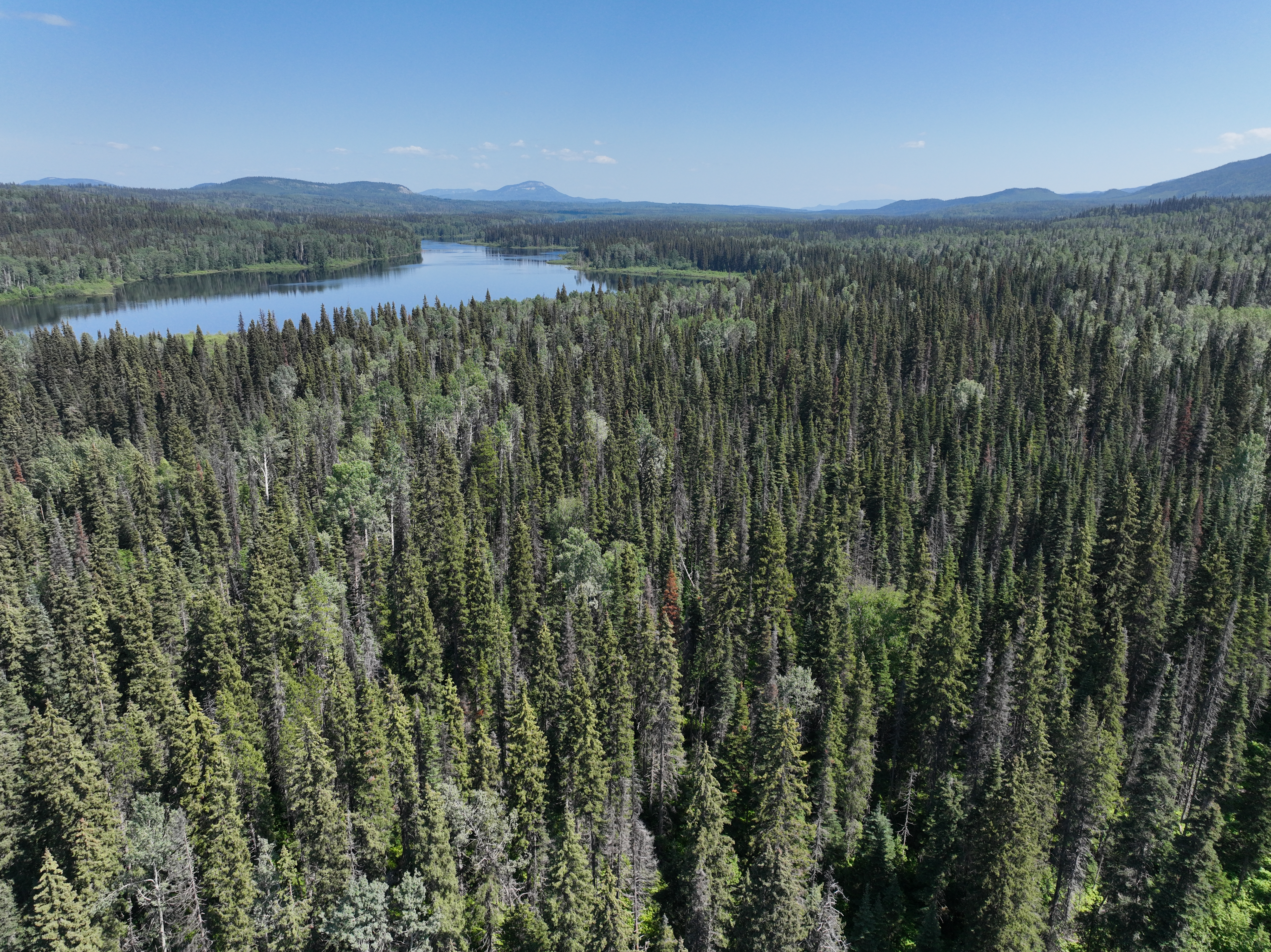As the South Korean government prepares to update its Renewable Energy Certificate scheme, pressure mounts to end support for biomass

April 5, 2024 (SEOUL) – A group of 69 climate and environmental organizations from around the world have jointly addressed a letter to South Korean President Yoon Suk-yeol to urge the removal of renewable energy subsidies for biomass during the upcoming revision of the Renewable Energy Certificate (REC). Biomass is currently the largest source of “renewable energy” in South Korea, growing by 42 times over the last decade.
According to Solutions for Our Climate (SFOC), biomass power plants in South Korea have received about $3.7 billion worth of RECs while burning 50 million metric tons of wood since 2015. Despite its climate and human rights issues, biomass is given a higher amount of subsidy per unit of power generated than solar and wind under the current REC.
The letter criticizes South Korea for taking advantage of an accounting loophole in outdated IPCC rules that allow consumer countries like South Korea to omit emissions from burning biomass in their energy sector. This creates an incentive for South Korea to continue expanding its biomass use, while outsourcing its own carbon burden to producing countries, many of which are in the Global South. SFOC estimates that South Korea transferred a total of 5.8 MtCO2 of mitigation burden to producing countries in 2022 alone.
The letter also points out that South Korea has increased its imports of the internationally sanctioned Russian wood pellets by 8 times since its invasion of Ukraine. As the world’s third-largest biomass market, South Korea’s growing demand for Russian wood pellets is enabling the current humanitarian crisis.
“The world is ready to move beyond biomass,” the NGO letter reads. “In 2023, the first global stocktake of the Paris Agreement agreed on the need of tripling global renewable capacity by 2030 while halting and reversing deforestation and forest degradation by the same year.” The organizations urge the South Korean government to respond to global demands by removing “these market-distorting subsidies that have hindered the expansion of renewable energy,” which “will help restore Korea’s reputation in climate action.”
QUOTES
Mr. Hansae Song, the Forests and Land Use Program Lead at Solutions for Our Climate (SFOC), South Korea:
“Burning wood for electricity drives deforestation and results in higher CO2 per unit of energy produced than fossil fuels. Yet, the South Korean government still classifies biomass as renewable energy and provides billions of dollars in subsidies. Instead of investing in this dangerous distraction, South Korea must focus on investing in clean, affordable, and readily available renewable energy, such as solar and wind power.”
Ms. Amalya Reza, Bioenergy Portfolio Manager from Trend Asia, Indonesia:
“Following the path of South Korea, Indonesia has implemented a biomass and coal co-firing program in 52 of its coal-fired power plants. The demand for biomass is driven by both domestic and export needs, particularly to South Korea. This has led to various consequences such as deforestation, loss of biodiversity, scarcity of food and water, and conflicts over land, affecting Indigenous communities, farmers, and fishermen. South Korea needs to acknowledge and address these issues. By discontinuing the use of woody biomass, South Korea can help alleviate the strain on biomass production and its harmful effects in Indonesia."
Ms. Tegan Hansen, Senior Forest Campaigner from Stand.earth, Musqueam, Squamish and Tsleil-Waututh territories (Vancouver, British Columbia, Canada):
“Beside Drax’s pellet plants in British Columbia are piles of freshly cut logs — trees from forests that are vital to communities, for wildlife, and for mitigating the impacts of the climate crisis. Instead, companies like Drax level forests to make wood pellets, many of which are exported to South Korea to generate highly polluting biomass energy. For the sake of these forests, the well-being of communities, and the future of our planet, South Korea must become a leader and move beyond biomass.”
Ms. Peg Putt, Policy and Campaigns Coordinator from Biomass Action Network (BAN), Environmental Paper Network (EPN) International:
“Logging and burning the Earth's forests to fuel large-scale energy production is devastating to the climate, to biodiversity, and to communities throughout the production chain. The industry ignores serious climate justice issues where demand for biomass exacerbates conflict over land and forest resources, threatens the rights and livelihoods of indigenous and local communities, and pollute surrounding communities, increasing respiratory and other diseases. Forests that are experiencing intense biomass harvesting are going from being carbon sinks to emitting more carbon than coal.”
ENDS.
Solutions for Our Climate (SFOC) is an independent non-profit organization that works to accelerate global greenhouse gas emissions reduction and energy transition. SFOC leverages research, litigation, community organizing, and strategic communications to deliver practical climate solutions and build movements for change.
For media inquiries, please reach out to:
Euijin Kim, International Communications Officer, euijin.kim@forourclimate.org
Attachments
Share this insights










![[Webinar] International webinar on enhancing due diligence of forest risk commodities' supply chains in Asia](https://content.sfoc.tapahalab.com/images/research/sjGudme.jpg)



![[토론회] 한국형 녹색분류체계(K-Taxonomy), 무엇이 녹색경제활동인가](https://content.sfoc.tapahalab.com/images/research/bn8jdme.jpg)

![[Webinar] Palm Oil based Biofuels Policy and Socio-Environmental Impacts in Asia](https://content.sfoc.tapahalab.com/images/research/BOpldme.jpg)






